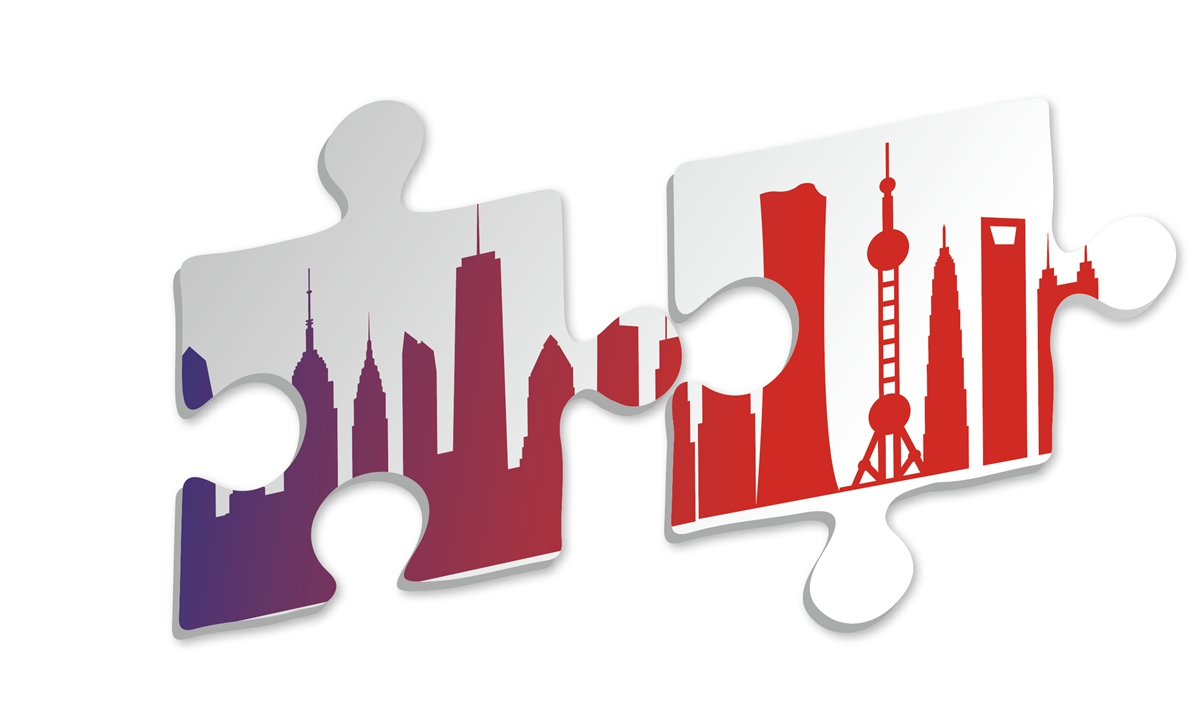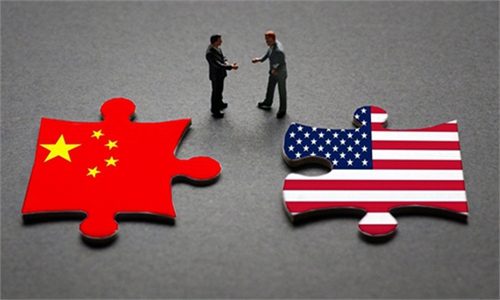
Photo: VCG
Editor's Note:
The US is capable of accurately understanding and engaging with China, its policies can be immune to the influences of extreme hawks and China-US relations can develop on a stable and healthy track - these are the shared aspirations of rational individuals from both countries regarding this most important bilateral relationship in the world. In the "Wisdom on China&US" series, the Global Times (GT) gathers the opinions of rational individuals from both the US and China to provide their perspectives on objectively viewing China and the right way for China and the US to coexist. In the fourth article of the series, GT reporter Wang Wenwen talked with Sarwar Kashmeri (Kashmeri), host of Polaris-Live.com, an online channel devoted to improving China-US relations and a senior fellow at the New York-based Foreign Policy Association.
GT: What do you think of the Donald Trump administration imposing additional tariffs on China?
Kashmeri: My position on tariffs is in line with that of the leading US CEOs and the US Chamber of Commerce: Tariffs are not the answer. They increase costs for families and destroy the finely integrated supply chains of today's interconnected world. Yes, America has a real problem at its borders, but tariffs are not going to resolve it, they will simply give another excuse for the US administration and Congress to avoid coming up with a long-term solution.
GT: It seems that the US has not been ready to accept China's rise, while China focuses on its own development. Why is this the case?
Kashmeri: Every country, including China and the US, thinks first of its own national interests. However, America has never before come face to face with another country that is as tall as China. In just three decades, China has become an economic powerhouse and another superpower in the world. Yes, there was a Cold War, and the Soviet Union and America were engaged in tough trade and arguments. But the US conducts significantly more trade with China in a single year than it ever did with the Soviet Union. So, the relationship with China is completely different from what the Cold War was, which is why I've never agreed with the analogy of a "new cold war" with China. Globally, America remains far more powerful militarily; it has, for instance, around 750 military bases.
It's very easy to get American people fired up when there is a competitor, and there's not much we can do about that. Americans like to be at the top of the world. We want to make sure that we are. The American global leadership is under threat and people see that.
Over the last eight to 10 years, the relationship between America and China has become increasingly more toxic. It behooves both countries, in my opinion, to take whatever small steps they can to slowly start reversing that.
GT: Can you give an example of what small steps China and the US can take?
Kashmeri: We need to figure out how we move ahead. A former US official once told me that a good project would be the elimination of tuberculosis, which affects people in developing countries. Every year 10 million people around the world suffer from this disease. The former official suggested that it would be a wonderful opportunity for China and the US to come together on a project because the removal of a disease in developing countries would mean so much to those countries, and both America and China can take great pride in it. That's the kind of project we should be thinking of.
GT: What strategy would you recommend to both countries to navigate turbulences?
Kashmeri: There are a lot of China hawks in the administration, but there are also individuals with common sense. Given this fact, patience is a good strategy for navigating the current situation. Soybean is a good example: While China can find other places to buy soybeans, our farmers in the Midwest would be severely hurt and the costs for China to replace this import would likely increase. So, there are both commercial and security reasons for taking small steps to continue improving our bilateral ties.
Ultimately, I have faith in the common sense of the ordinary American people. Therefore, I'm optimistic about the long term.
We are only one month into the new administration. Let's wait and see how things go. I admire China's history and its trajectory, because it has encountered so many kingdoms, so many obstacles, which it has overcome with patience. China being patient doesn't mean it sacrifices its national interest, but having patience is useful. This is something not every country has.
GT: You have studied the China-proposed Belt and Road Initiative (BRI) extensively and written a book on it. How does understanding the BRI help American readers gain a better understanding of China? Why do you think the US should have a better understanding of China?
Kashmeri: I would like Americans to ask themselves this question: Why has the US forgotten how valuable a strong aid policy is for foreign policy? The BRI now has more than 150 participating countries, and all of these countries think highly of China. I would like America to once again be viewed as a country that is genuinely committed to helping others.
I've talked to some of my colleagues in Southeast Asia. They say that we will forever be thankful to America for keeping the peace after World War II and allowing our economies to grow. But now, they told me, we don't need warships and tanks, we need airports, fiber optics, roads, infrastructure. That's where China has excelled and shown the way. I would like to see us incorporate some of that thinking back into American politics.

